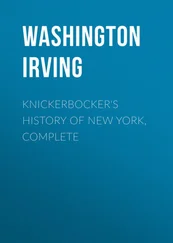The headwaiter came into Freud’s room. It was the best room in the men’s dorm—no one knew how Freud ended up with it. The headwaiter began to undress.
“Everything but your jacket, dummy,” Freud said to him. “Doctors don’t wear waiters’ jackets.”
Father had a black tuxedo jacket that more or less agreed with the waiter’s black pants, and he brought it to Freud.
“I’ve told them, a million times,” the headwaiter said—although he looked strange saying this with any authority, while he was naked. “There should be a doctor who actually lives at the hotel.”
When Freud was all dressed, he said, “There is .” The desk manager ran back to the main hotel ahead of him. Father watched the headwaiter looking helplessly at Freud’s abandoned clothes; they were not very clean and they smelled strongly of State o’Maine; the waiter, clearly, did not want to put them on. Father ran to catch up with Freud.
The Germans, now in the driveway outside the entrance, were grinding a large trunk across the gravel; someone would have to rake the stones in the morning. “Is der not enough help at dis hotel to help us?” one of the Germans yelled.
On the spotless counter, in the serving room between the main dining hall and the kitchen, the big German with the gashed cheek lay like a corpse, his pale head resting on his folded-up dinner jacket, which would never be white again; his propeller of a dark tie sagged limply at his throat, his cummerbund heaved.
“It’z a goot doctor?” he asked the desk manager. The young giantess in the gown with the yellow ruching held the German’s hand.
“An excellent doctor,” the desk manager said.
“Especially at stitching,” my father said. My mother held his hand.
“It’z not too civilized a hotel, I tink,” the German said.
“It’z in der vilderness ,” the tawny, athletic woman said, but she dismissed herself with a laugh. “But it’z nicht so bad a cut, I tink,” she told Father and Mother, and the desk manager. “We don’t need too goot a doctor to fix it up, I tink.”
“Just so it’z no Jew,” the German said. He coughed. Freud was in the small room, though none of them had seen him; he was having trouble threading a needle.
“It’z no Jew, I’m sure.” The tawny princess laughed. “They haf no Jews in Maine!” When she saw Freud, she didn’t look so sure.
“ Guten Abend, meine Dame und Herr ,” Freud said. “ Was ist los ?”
My father said that Freud, in the black tuxedo, was a figure so runted and distorted by his boil scars that he immediately looked as if he had stolen his clothes; the clothes appeared to have been stolen from at least two different people. Even his most visible instrument was black—a black spool of thread, which Freud grasped in the grey-rubber kitchen gloves the dishwashers wore. The best needle to be found in the laundry room of the Arbuthnot looked too large in Freud’s small hand, as if he’d grabbed the needle used to sew the sails for the racing boats. Perhaps he had .
“Herr Doktor ?” the German asked, his face whitening. His wound appeared to stop bleeding, instantly.
“Herr Doktor Professor Freud,” Freud said, moving in close and leering at the wound.
“Freud?” the woman said.
“ Ja ,” Freud said.
When he poured the first shot glass of whiskey into the German’s cut, the whiskey washed into the German’s eyes.
“Ooops!” said Freud.
“I’m blind! I’m blind!” the German sang.
“ Nein , you’re nicht so blind,” Freud said. “But you should have shut your eyes.” He splashed another glass in the wound; then he went to work.
In the morning the manager asked Freud not to perform with State o’Maine until after the Germans left—they were leaving as soon as ample provisions could be loaded aboard their large vessel. Freud refused to remain attired as a doctor; he insisted on tinkering with the ’37 Indian in his mechanic’s costume, so it was in such attire that the German found him, seaward of the tennis courts, not exactly hidden from the main hotel grounds and the lawns of play, but discreetly off to himself. The huge, bandaged face of the German was badly swollen and he approached Freud warily, as if the little motorcycle mechanic might be the alarming twin brother of the “Herr Doktor Professor” of the night before.
“ Nein , it’z him ,” said the tanned woman, trailing on the German’s arm.
“What’s the Jew doctor fixing this morning?” the German asked Freud.
“My hobby,” Freud said, not looking up. My father, who was handing Freud his motorcycle tools—like an assistant to a surgeon—took a firmer grip on the three-quarters-inch wrench.
The German couple did not see the bear. State o’Maine was scratching himself against the fence of the tennis court—making deep, thrusting scratches with his back against the metal mesh, groaning to himself and rocking to a rhythm akin to masturbation. My mother, to make him more comfortable, had removed his muzzle.
“I never heard of such a motorcycle as dis ,” the German told Freud, critically. “It’z junk , I tink, ja ? What’s an Indian? I never heard of it.”
“You should try riding it yourself,” Freud said. “Want to?”
The German woman seemed unsure of the idea—and quite sure that she didn’t want to—but the idea clearly appealed to the German. He stood close to the motorcycle and touched its gas tank and ran his fingers over its clutch cable and fondled the knob to the gearshift. He seized the throttle at the handlebars and gave it a sharp twist. He felt the soft rubber tube—like an exposed vital organ among so much metal—where the gas ran from the tank into the carburetor. He opened the valve to the carburetor, without asking Freud’s permission; he tickled the valve and wet his fingers with gasoline, then wiped his fingers on the seat.
“You don’t mind, HerrDoktor?” the German asked Freud.
“No, go on,” Freud said. “Take it for a spin.”
And that was the summer of ’39: my father saw how it would end, but he could not move to interfere. “I couldn’t have stopped it,” Father always said. “It was coming , like the war.”
Mother, at the tennis court fence, saw the German mount the motorcycle; she thought she’d better put State o’Maine’s muzzle back on. But the bear was impatient with her; he shook his head and scratched himself harder.
“Just a standard kick starter, ja ?” the German asked.
“Just kick it over and she’ll start right up,” Freud said. Something about the way he and Father stepped away from the motorcycle made the young German woman join them; she stepped back, too.
“Here goes!” the German said, and kicked the starter down.
With the first catch of the engine, before the first rev, the bear called State o’Maine stood erect against the tennis court fence, the coarse fur on his dense chest stiffening; he stared across centre court at the 1937 Indian that was trying to go somewhere without him. When the German chunked the machine into gear and began, rather timidly, to advance across the grass to a nearby gravel path, State o’Maine dropped to all fours and charged. He was in full stride when he crossed centre court and broke up the doubles game—racquets falling, balls rolling loose. The player who was playing net chose to hug the net instead; he shut his eyes as the bear tore by him.
“Earl!” cried State o’Maine, but the German on the throaty ’37 Indian couldn’t hear anything.
The German woman heard, however, and turned—with Father and Freud—to see the bear. “ Gott! Vut vilderness!” she cried, and fainted sideways against my father, who wrestled her gently to the lawn.
Читать дальше












